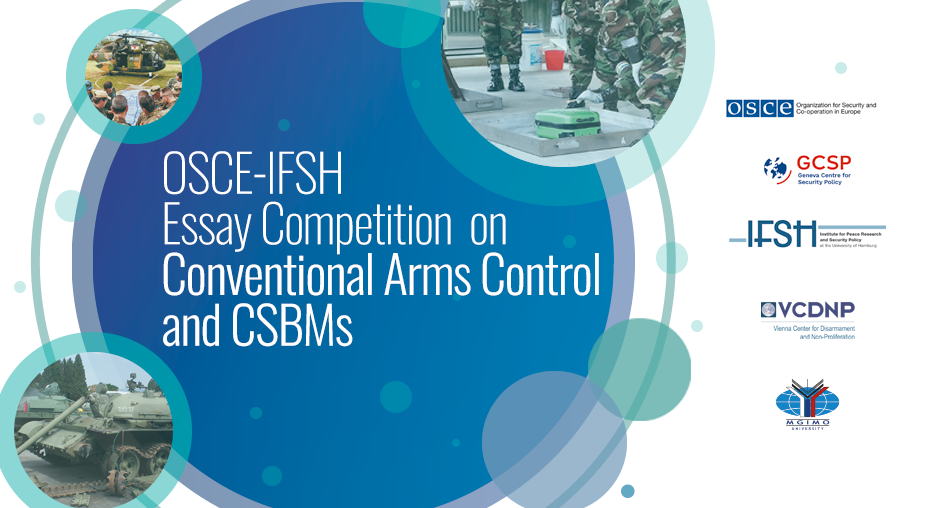Artificial intelligence and distributed ledger technology top second essay competition on arms control and confidence- and security-building measures in Europe

VIENNA, 8 December 2021 — The winners of the OSCE–Institute for Peace Research and Security Policy at the University of Hamburg (IFSH) Essay Competition: Conventional Arms Control and Confidence- and Security-Building Measures (CSBM) in Europe were announced today at a virtual award ceremony held during an OSCE Forum for Security Co-operation (FSC) meeting organized by the Austrian FSC Chairmanship.
The competition, which counted 36 entries submitted by young professionals under 35 years of age from OSCE participating States and Partners for Co-operation, aims to strengthen youth engagement in the field of arms control and CSBMs. It is a joint initiative between the OSCE, the IFSH, the Geneva Centre for Security Policy (GCSP), Moscow State Institute of International Relations and the Vienna Centre for Disarmament and Non-proliferation (VCDNP).
“We need the young generation of specialists on conventional arms control and CSBMs who will promote and develop it further either as members of diplomatic service or academia. Young people have a critical role to play in raising awareness and contributing to the development of new confidence and security-building strategies to reduce threats from conventional arms “, said Ambassador Florian Raunig, Permanent Representative of Austria to the OSCE, during his opening remarks at the ceremony.
The first and second prizes were co-shared between Anna Nadibaidze (University of Southern Denmark), who addressed artificial intelligence, and Nicolò Miotto (Charles University Prague), who discussed distributed ledger technologies. Their essays considered the “untapped potential” of European arms control and laid out policy proposals and recommendations on how to strengthen the role of the OSCE in the field of emerging technologies. Third prize was awarded to Claudia Ditel (Karl-Franzens-Universität Graz) for her essay that explored mine action as a confidence-building measure.
“We need the active participation and fresh ideas of a young generation of experts to build on our knowledge of conventional arms control and CSBMs. Learning more about their innovative ideas and opinions is important, and is one of the reasons why the OSCE supports this initiative”, said Ambassador Tuula Yrjölä, Director of the OSCE Conflict Prevention Centre.
“One of the most worrying aspects of the worsening security situation in Europe is the absence of a sense of alarm,” said Cornelius Friesendorf, Head of the Centre for OSCE Research (CORE) at the IFSH, who spoke on behalf of all the partners involved in the competition. “Many politicians, government officials, and citizens seem to believe that the current crisis will solve itself. Arms control and confidence- and security-building measures are urgently needed to avoid possible escalation. This competition gives a voice to students and young professionals whose ideas and engagement for peace militate against the politics of confrontation, apathy, and complacency.”
This is the second essay competition on this topic, following the first iteration held in 2020. Participants were invited to submit original essays on five topics related to conventional arms control and confidence- and security-building measures (CSBMs) in Europe. Each entry was evaluated anonymously by a jury of experts from the field using a process and scoresheet defined prior to the competition launch. Of the entries received, 53% were from female participants.
Read more about the winners and their entries here: https://www.osce.org/forum-for-security-cooperation/507332.
